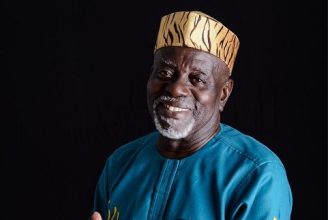They should foster a communication plan that embraces languages in their countries’ socio- economic development plans – to ensure that nobody is left behind.
Ms. Margaret Nankinga, a Language Commission Coordinator for the African Academy of Languages (ACALAN-AU), in an interview with the Ghana News Agency (GNA), Accra, observed that development was based on communication.
While African languages are spoken more widely throughout African countries than the European languages, their respectability as conveyors of important messages for development purposes is in question.
With more than 2,000 languages being used in Africa, language has become a highly relevant factor in all sectors of political, socio-cultural and economic life.
Ms. Nankinga, briefing the GNA on the celebration of the African Languages Week, slated for January 24-30, next year, said stakeholders should see it as a priority by getting involved in organising events and activities that will help create awareness about African languages.
The Week will be celebrated on the theme: “African Languages for Sustainable Food Security, Cultural and Socio-Economic Development for the Africa We Want”.
According to the Language Commission Coordinator, the theme aimed at bringing out the role of African languages and culture in the mobilisation of the people in key development aspects like elimination of hunger.
The African Languages Week is an initiative of the ACALAN headed by the Executive Secretary, Dr Dampha Fafa Lang.
Pan-Africans argue that the colonial legacy has rendered African languages impotent in many countries on the continent, citing the fact that most countries continue to use the former colonial language as the primary language of formal education
In his book, ‘The Place of Indigenous Languages in African Development’, Professor Kithaka wa Mberia, of the Department of Linguistics and Languages, University of Nairobi, demonstrated that “indigenous languages can and should be used as vehicles for African development.
“Whereas they are an important part of the definition of who Africans are culturally, they are also important economically.
“They can be used to produce better individuals through their use as media of instruction as well as contribute greatly to the achievement of African developmental goals,” he observes.
According to the Professor of Languages, the indigenous languages were an important resource for Africa, therefore, there was the need to manage them well just as we manage other resources.
Such management, he said, should aim to preserve, promote and modernise the languages as well as to assign them new roles in society alongside the traditional roles to bring sustainable growth to the continent.
















